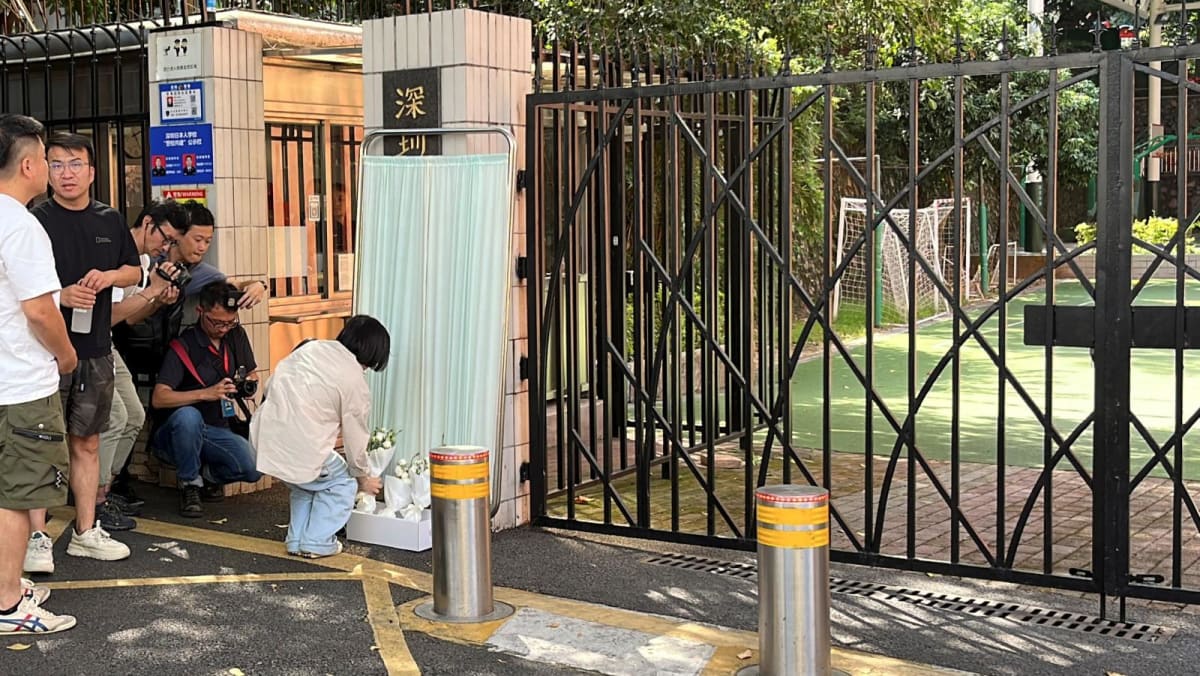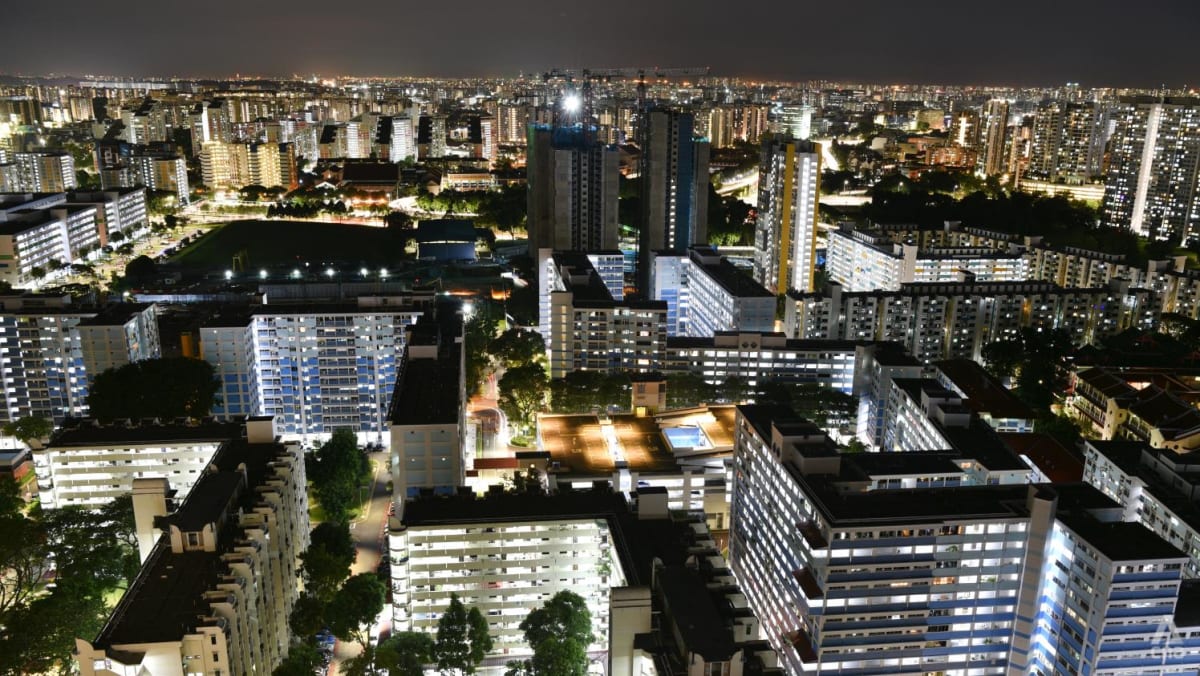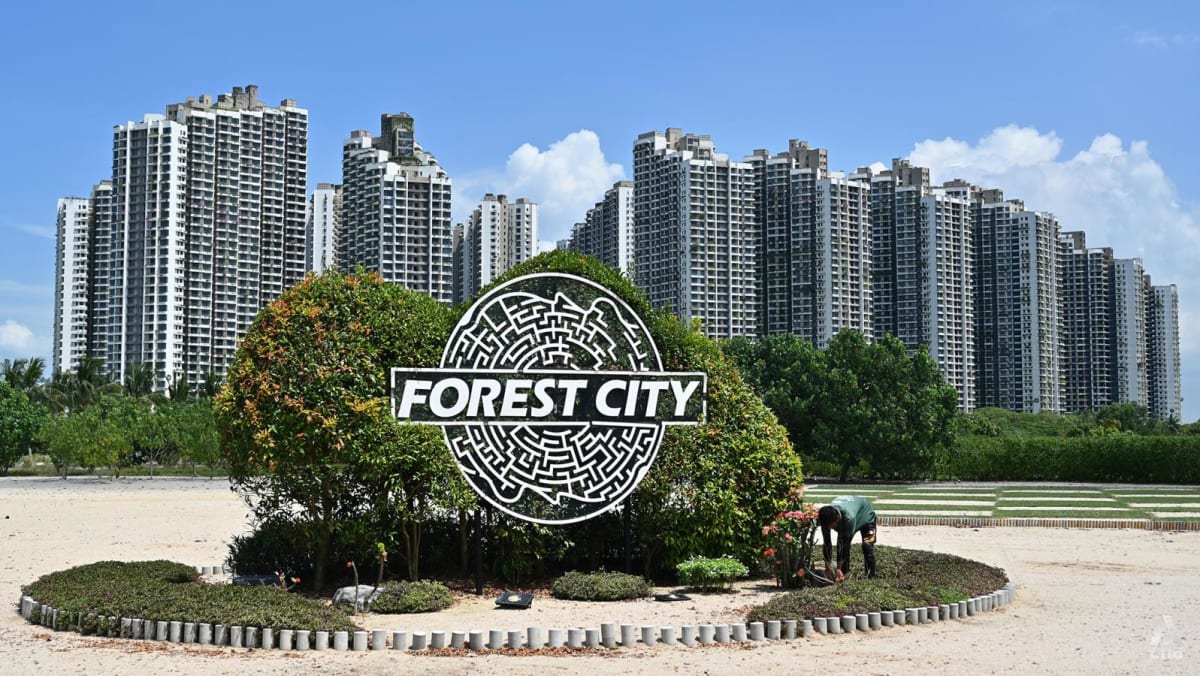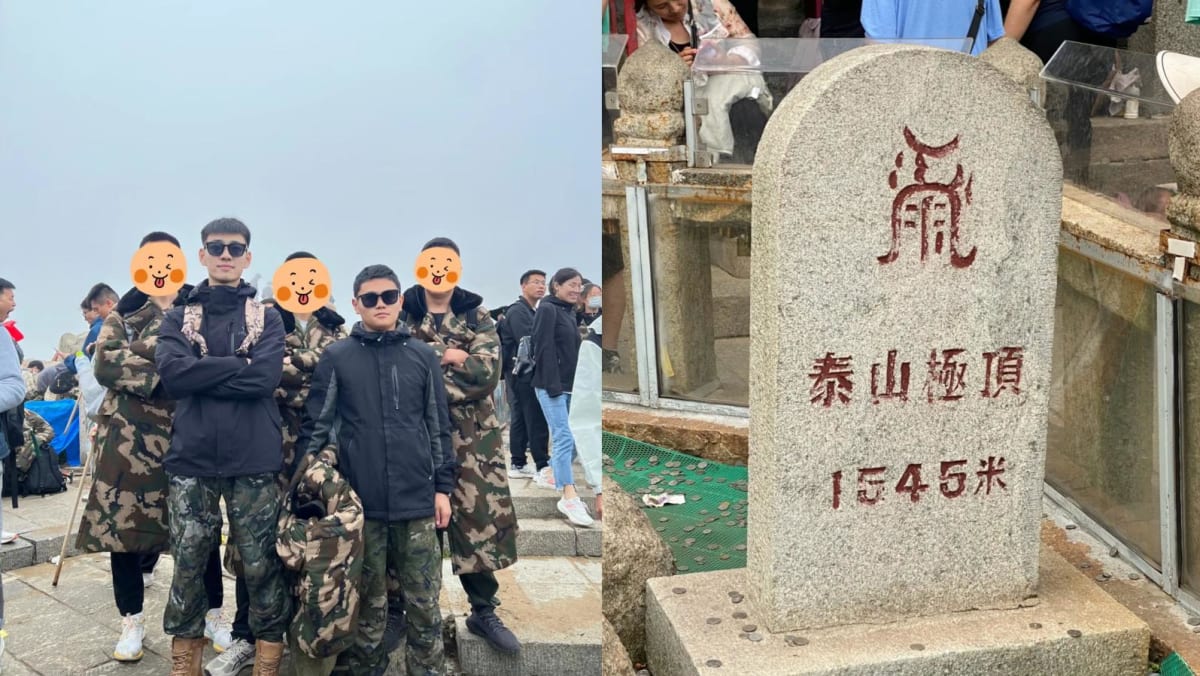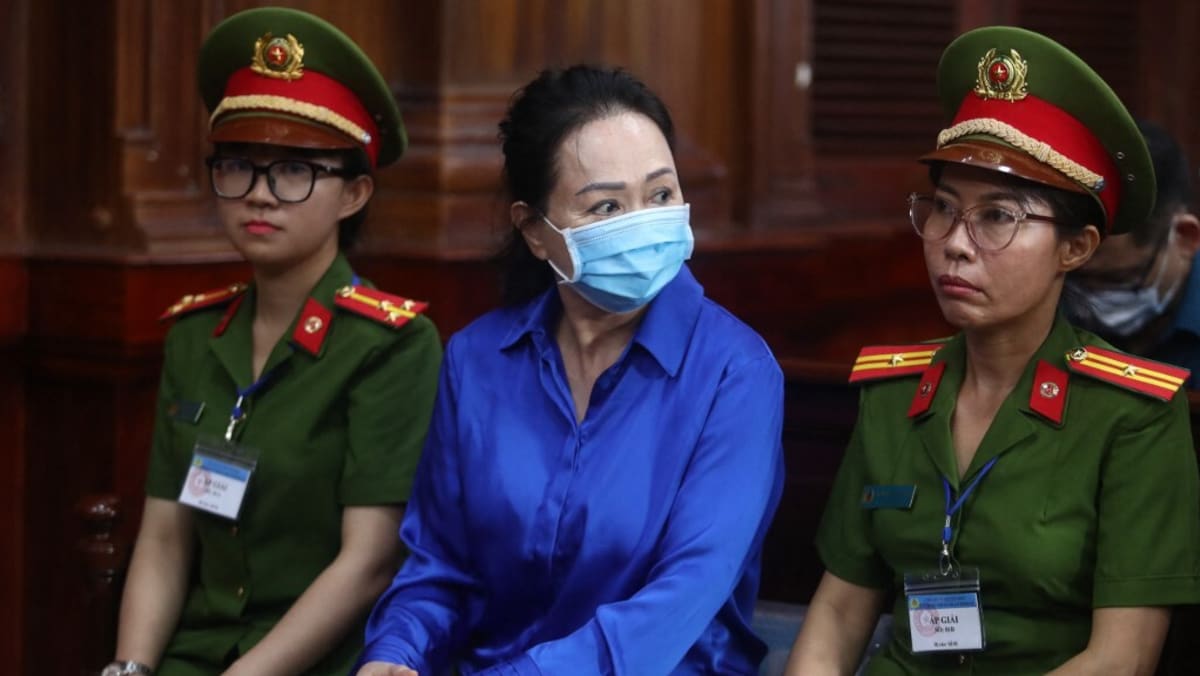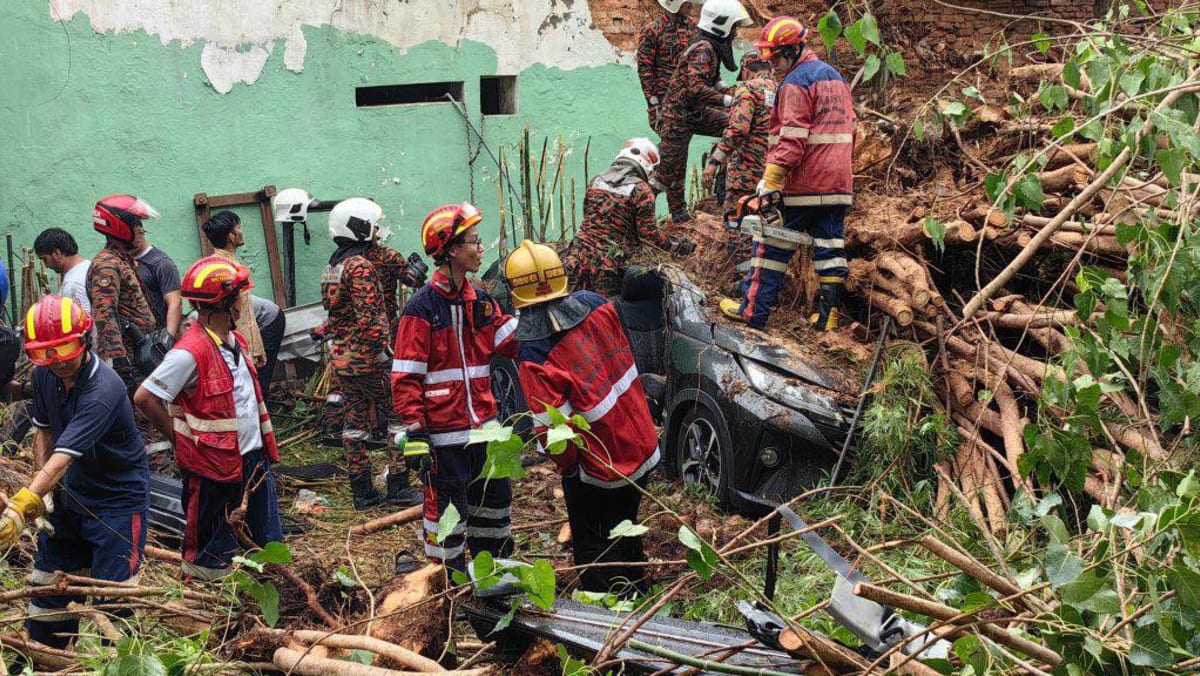KL sinkhole: Authorities shift from rescue to recovery after operation deemed too dangerous to continue
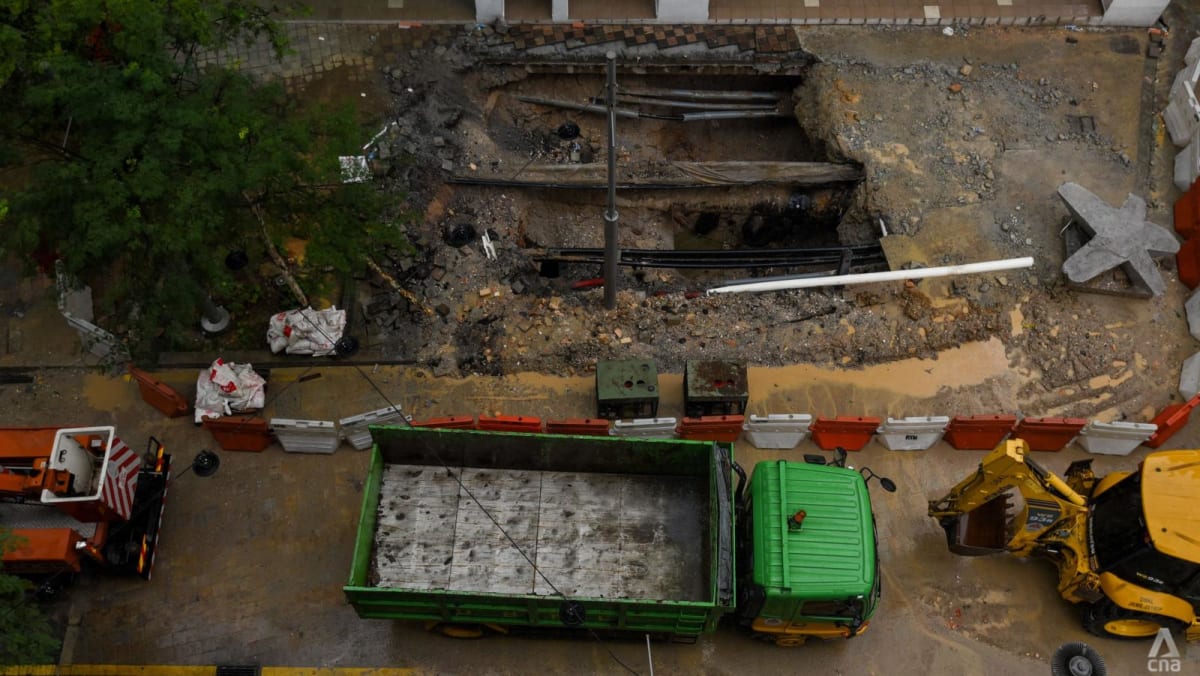
The Star reported on Friday that authorities had halted search and rescue efforts at the sinkhole area on Jalan Masjid India, but will continue combing through the Pantai Dalam treatment plant where the sewer ends 7km away from the incident site.
The Fire and Rescue Department said this decision was made after its findings indicated it was too risky to continue rescue efforts using scuba diving methods.
Authorities previously said the search for the 48-year-old tourist, identified by local media as Ms Vijaya Lakshmi, will continue until she is found. She was reportedly on a two-month holiday with her family and was due to return home soon before she fell into the 8m-deep sinkhole on Jalan Masjid India on the morning of Aug 23.
A portion of a large concrete sewer at the bottom of the sinkhole was broken, and Ms Lakshmi might have fallen in and been swept away, authorities have suggested.
But recent heavy rain in Kuala Lumpur, leading to fast-moving currents in the sewer, has complicated divers’ efforts in scouring these large pipes. Stubborn debris in the pipes might have also blocked Ms Lakshmi from being swept all the way to the treatment plant, where metal screens are in place to catch large objects.
Rescuers have used camera crawlers and ground-penetrating radar to look for Ms Lakshmi and have tried using high-pressure water jets to cut through debris in the sewer before flushing it out, but the victim remains missing a week on.
Dr Zaliha said on Saturday that she had discussed with India’s High Commissioner to Malaysia BN Reddy the decision to stop rescue efforts, adding that he had thanked Malaysia for its efforts and understood the decision.
“God willing they will help us be with the family members to explain our decision,” she said, adding that any potential compensation for the family will be “discussed”.
Both Prime Minister Anwar Ibrahim and Kuala Lumpur’s mayor have said the capital remains safe, although shops in the Masjid India area say business has declined significantly as locals and tourists stay away.
Mr Anwar said on Friday that a geotechnical study had established the cause of the incident and found that it was safe, adding that any areas considered at risk of turning into sinkholes should be dealt with right away, the Star reported.
“Kuala Lumpur in general is safe,” Dr Zaliha reiterated on Saturday.
“We have also discussed with parties who have more expertise than us, and perhaps after this the geology department will give more information on the structural safety of Kuala Lumpur.”
Experts have said that sinkholes could be caused by over-pumping of groundwater during underground construction work; broken pipes or sewers where leaking water can erode the soil beneath the surface; or mining activities where large voids may collapse.
In Kuala Lumpur, where limestone sits underneath the soil, water from rainfall can collect in cracks in the limestone and lead to erosion. As the limestone dissolves and is carried away, the cracks widen until the ground above becomes unstable and collapses.
Source: CNA


